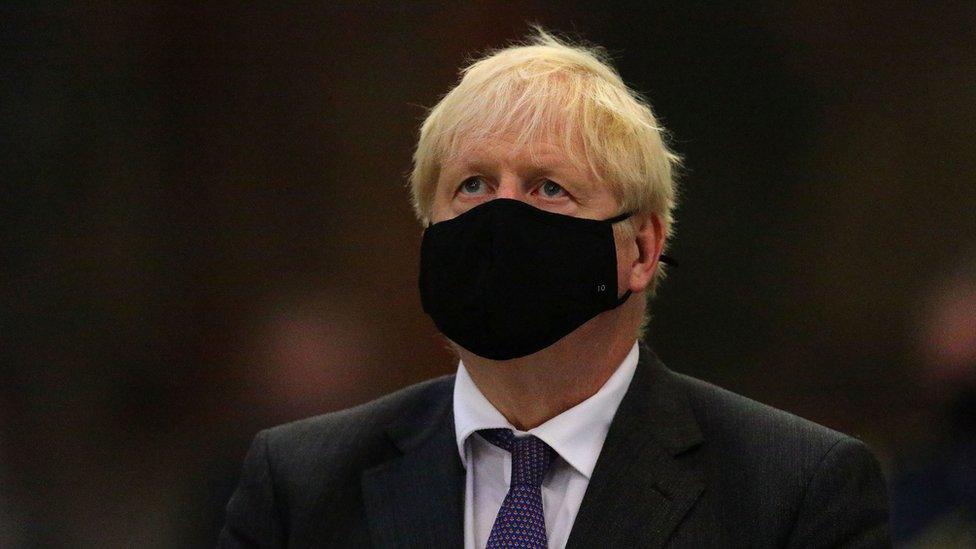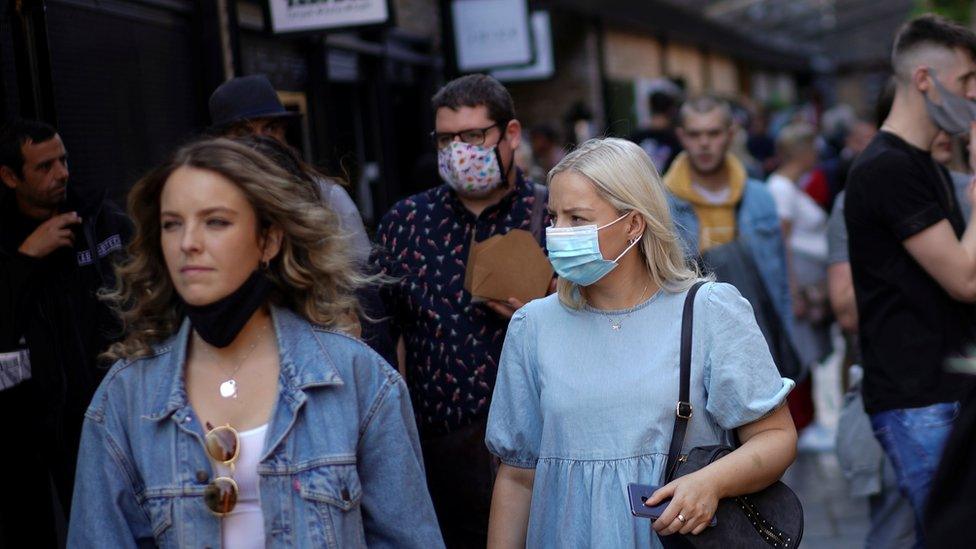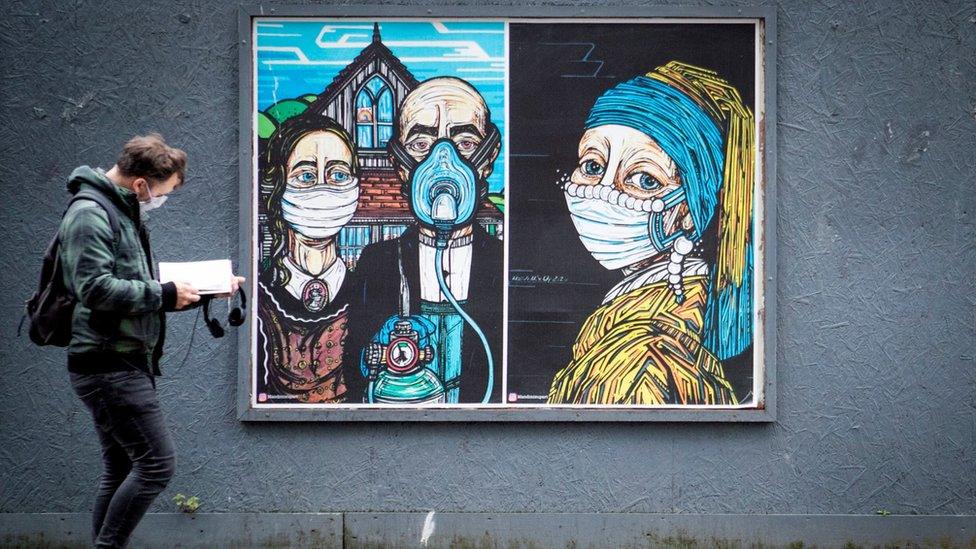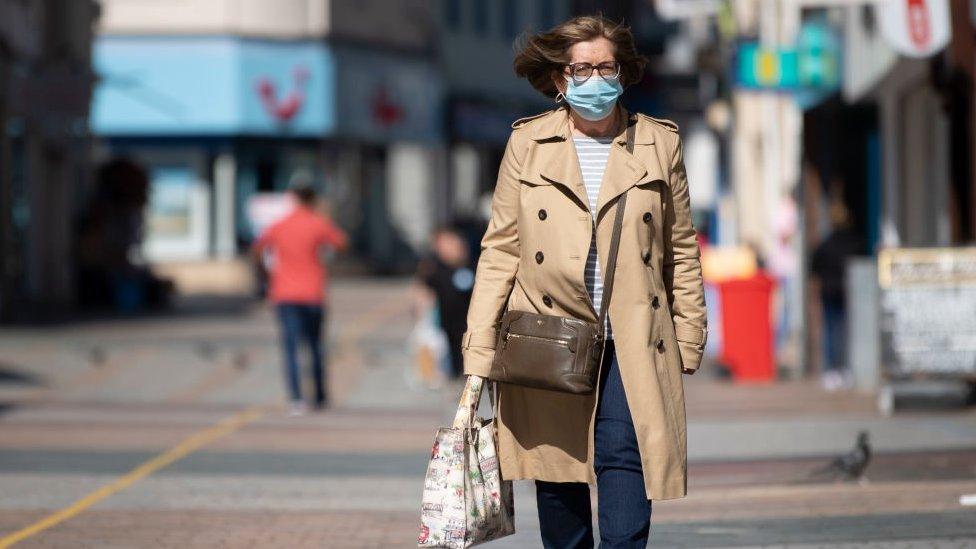Coronavirus: New restrictions no longer a 'question of if'
- Published

It is not a question of 'if'.
Downing Street will have to introduce extra restrictions to try to slow down the dramatic resurgence of coronavirus.
You would only have to have dipped into a minute or two of the sober briefing from the government's most senior doctor and scientist this morning, which you can read about here, to see why.
A second wave of the disease is here and - unchecked - it could result in many, many thousands more deaths, with potentially around 50,000 cases every day in a few weeks' time.
What is not yet settled however, is exactly what, exactly when, and indeed, exactly where these restrictions will be.
Here's what it is important to know:
The government is not considering a new lockdown across the country right now.
The prime minister is not about to tell everyone to stay at home as he did from the Downing Street desk in March.
Ministers have no intention at all to close schools again.
Nor, right now, are they planning to tell every business, other than the essential, to close again.
'Circuit break'
What is likely is some kind of extra limits on our huge hospitality sector.
This could, as we reported on Friday, be a 'circuit break' - where pubs, restaurants and other places where people spend leisure time, and money, close completely for a couple of weeks.
There is, however, a vigorous debate inside the government about whether tighter safety rules in those kinds of venues, along with the harsher punishments that have already been announced with whopping fines, could have a good enough effect.
What about shutting pubs earlier? What about only allowing table service?
The chancellor in particular is reluctant to completely close any sector of the economy again.
When so much is unknown about this new disease, is it realistic that ministers can find a blend of decisions to have the optimum effect?
'Urgent'
In terms of the when, some in government are arguing for more immediate action.
It was pretty clear from this morning's briefing that Professor Whitty and Sir Patrick Vallance believe the situation is urgent.
One of the proposals on the table has been expanding the autumn half term school break, with a tightening of restrictions over a fortnight.
Although the tone in government circles seems to be moving more towards swifter action.
Still under discussion too is whether additional restrictions should be brought in everywhere.
Some parts of the country are lucky enough still to have very little of the second wave spread. It may seem unfair to bring in tighter measures there.
But, without country-wide concerted action, will the public's behaviour really change?
None of the decisions that ministers are likely to take over the next few critical days can be seen in isolation.
Tighten the rules too much, and there could be unnecessary economic damage, which causes hardship and suffering too.
Do too little, and the spread of the virus could continue at a deadly pace.
- Published21 September 2020

- Published21 September 2020

- Published21 September 2020

